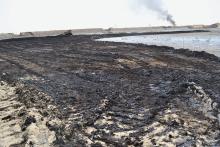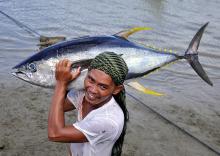Land Library
Bienvenido a la biblioteca de Land Portal. Explora nuestra amplia colección de recursos de acceso abierto (más de 74.000), que incluye informes, artículos de revistas científicas, trabajos de investigación, publicaciones revisadas por pares, documentos jurídicos, vídeos y mucho más.
/ library resources
Showing items 73 through 81 of 449.Nowadays it is hard to imagine European livestock production without soya-based feed. But this trend has had a massive impact on rural areas in the global South – the bulk of the soya fed to livestock in Europe is imported from Argentina and Brazil.
China has a longstanding tradition of using biogas for decentralised energy supply. Already, there are nearly 42 million household digesters in the rural areas, a figure set to double by 2020. But the country has even more ambitious plans.
Converting from subsistence to market-oriented farming can increase income.
The main objective of this research is to investigate land market values, urban land policies and their impacts on urban centers in Rwanda.
This policy brief summarizes the main findings and recommendations of qualitative and quantative research on urban land markets in Rwanda. The main objective of this research is to investigate land market values, urban land policies and their impacts on urban centers.
José Graziano da Silva, Director-General of the United Nations Food and Agriculture Organization (FAO), on the role of family farms for global food security, the need for sound rural development stategies and the responsibility of governments, the private sector and civil society.
Family farming has many different meanings to many different people. While such farms come in all shape and sizes, one thing all practitioners agree on is that family farming is more than a business – it’s a way of life.
Family farms are especially well suited to meet the challenges of labour organisation in agriculture. In early stages of development, they play a particularly important role in creating productive employment for the major share of the population.
For a long time, the agricultural policies of the Mercosur states ignored family farming, focusing on promoting individual crops and export production instead. Rural development was not on the agenda. Only after the turn of the millennium did a process of rethinking set in.








